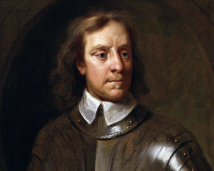Teaching History articles
1043 publications
-
 Move Me On 115: the class already know all about WW1
Move Me On 115: the class already know all about WW1
-
 Cunning Plan 114: building overview understanding of 19th-century social history
Cunning Plan 114: building overview understanding of 19th-century social history
-
 Polychronicon 114: interpretations of Oliver Cromwell
Polychronicon 114: interpretations of Oliver Cromwell
-
 The teaching and learning of history for 15-16 year olds: have the Japanese anything to learn from the English experience
The teaching and learning of history for 15-16 year olds: have the Japanese anything to learn from the English experience
-
 Empathy without illusions
Empathy without illusions
-
 Using fictional characters to explore the relationship between historical interpretation and contemporary attitude
Using fictional characters to explore the relationship between historical interpretation and contemporary attitude
-
 'Please send socks': How much can Reg Wilkes tell us about the Great War?
'Please send socks': How much can Reg Wilkes tell us about the Great War?
-
 Move Me On 114: Teaching history of medicine at GCSE
Move Me On 114: Teaching history of medicine at GCSE
-
 Move Me On 113: Getting pupils to really care about what happened in the past
Move Me On 113: Getting pupils to really care about what happened in the past
-
 Polychronicon 113: slavery in 20th-century America
Polychronicon 113: slavery in 20th-century America
-
 Keeping the kids on message...one school's attempt at helping sixth form students to engage in historical debating using ICT
Keeping the kids on message...one school's attempt at helping sixth form students to engage in historical debating using ICT
-
 Stretching the straight jacket of assessment: use of role play and practical demonstration to enrich pupils' experience of history at GCSE and beyond
Stretching the straight jacket of assessment: use of role play and practical demonstration to enrich pupils' experience of history at GCSE and beyond
-
 A scaffold, not a cage: progression and progression models in history
A scaffold, not a cage: progression and progression models in history
-
 JFK: the medium, the message and the myth
JFK: the medium, the message and the myth
-
 Triumphs Show 113: How to make the Elizabethan Religious Settlement sufficiently complicated for Year 8
Triumphs Show 113: How to make the Elizabethan Religious Settlement sufficiently complicated for Year 8
-
 A complex empire: National Archives Learning Curve takes on the British Empire
A complex empire: National Archives Learning Curve takes on the British Empire
-
 'Britain was our home': Helping Years 9, 10, and 11 to understand the black experience of the Second World War
'Britain was our home': Helping Years 9, 10, and 11 to understand the black experience of the Second World War
-
 Camels, diamonds and counterfactuals: a model for teaching causal reasoning
Camels, diamonds and counterfactuals: a model for teaching causal reasoning
-
 Confounding expectation at Key Stage 3: flower-songs from an indigenous empire
Confounding expectation at Key Stage 3: flower-songs from an indigenous empire
-
 History's future: facing the challenge
History's future: facing the challenge
-
 Transforming Year 7's understanding of the concept of Imperialism: a case study on the Roman Empire
Transforming Year 7's understanding of the concept of Imperialism: a case study on the Roman Empire
-
 Using this map and all your knowledge, become Bismarck
Using this map and all your knowledge, become Bismarck
-
 Triumphs Show 112: William Bent and family: a personal timeline of the Plains Wars
Triumphs Show 112: William Bent and family: a personal timeline of the Plains Wars
-
 Cunning Plan 112: Empire
Cunning Plan 112: Empire
-
 Polychronicon 112: The Angevin Empire
Polychronicon 112: The Angevin Empire
-
 Move Me On 112: Has problems with his subject knowledge
Move Me On 112: Has problems with his subject knowledge
-
 Reading and enquiring in Years 12 and 13
Reading and enquiring in Years 12 and 13
-
 Meeting the historian through the text
Meeting the historian through the text
-
 A most horrid malicious bloody flame: using Samuel Pepys to improve Year 8 boys' historical writing
A most horrid malicious bloody flame: using Samuel Pepys to improve Year 8 boys' historical writing
-
 'What's that stuff you're listening to Sir?' Rock and pop music as a rich source for historical enquiry
'What's that stuff you're listening to Sir?' Rock and pop music as a rich source for historical enquiry

